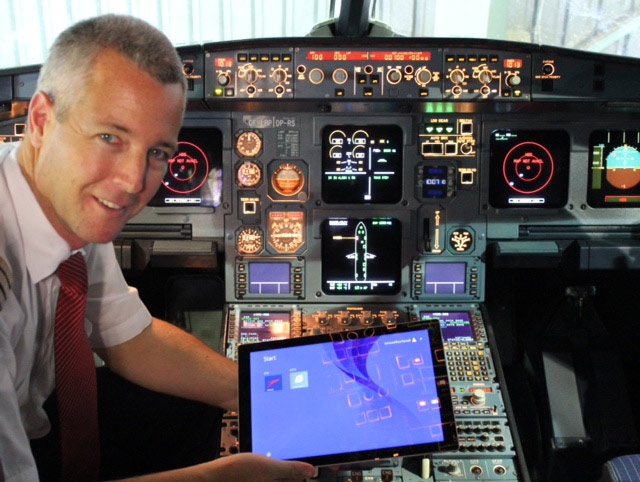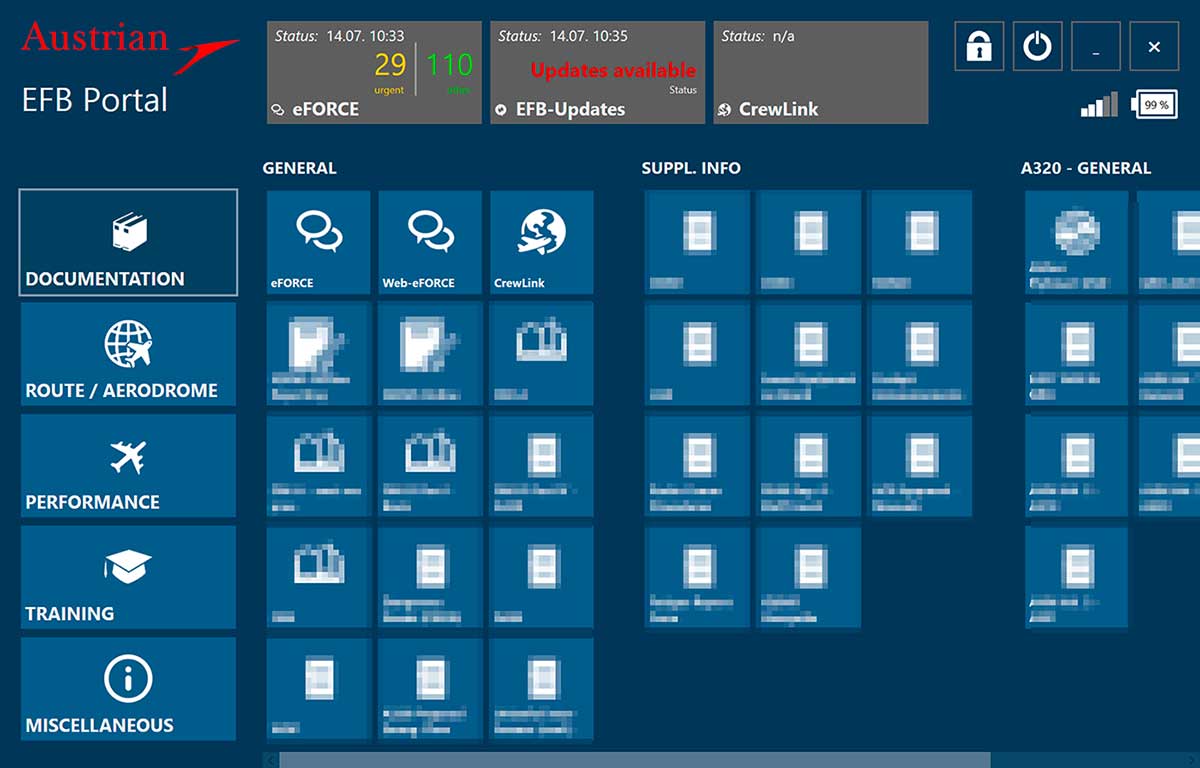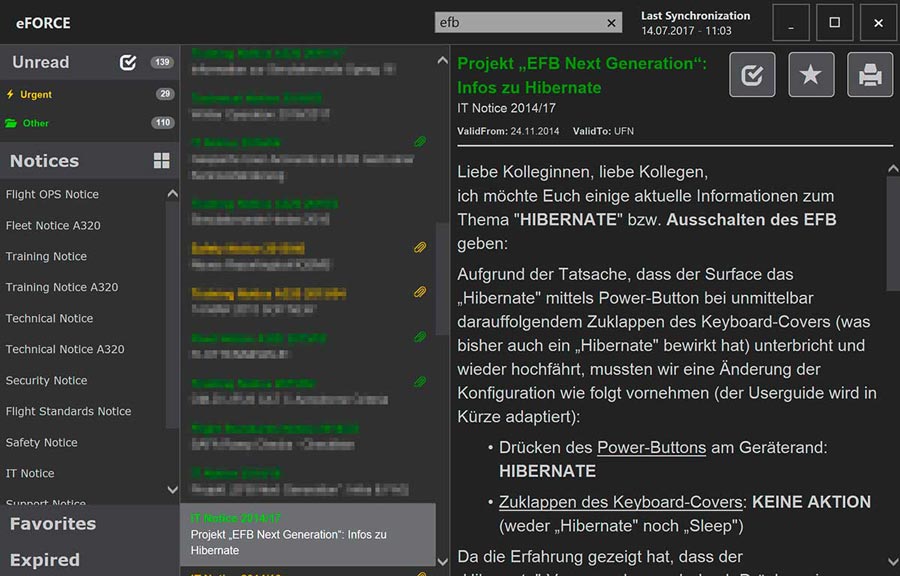
Customer

Austrian Airlines is Austria’s largest airline and operates a worldwide route network with around 130 destinations. Austrian Airlines has focused on cockpit digitisation for more than 15 years.
Highlights
- The latest flight information, apps and documents always available
- Easy CDM query
- eFORCE web client
- Cost-saving mode to limit data traffic
Technologies
- Microsoft Surface Pro 3 Tablets
- Windows 8.1
- Microsoft .NET Framework 4.5.1
- ASP.NET, WPF
- HTML 5
- AngularJS 1.2
- REST API
- DevExpress UI Framework
The Electronic Flight Bag as a permanent companion
“An electronic flight bag is an electronic pilot’s bag in the form of a tablet PC that contains all the information pilots need to plan and fly their routes”, explains Dr. Philipp Haller, flight captain at Austrian Airlines. Haller also manages the implementation of the project as the Electronic Flight Bag Administrator.
Pilots download the latest flight information, applications and documents (e.g. flight details, weather conditions and positioning, environmental and system data) via an Internet connection to their tablet PC so that the information is readily at hand offline during the flight.
The immediate availability of the latest flight information massively extends a pilot’s
radius of action in the air
The Electronic Flight Bag is in comprehensive use at Austrian Airlines with around 1,100 Surface Pro 3 tablets based on Windows 8.1.
Ongoing further development
RUBICON IT GmbH took over the further development of the Electronic Flight Bag in 2016. A number of rubicon employees have been working together with Austrian Airlines on the software, including its predecessor versions on the first laptops, for more than ten years. The following are some of its new features:
CDM query
Airport CDM (“Collaborative Decision Making”) serves to achieve the best possible turnaround process at the airport. RUBICON has developed an application that enables pilots to easily access the CDM platform operated by Vienna Airport and the calculated take-off time for their flight. It also displays the TSAT (=Target Start Up Approval Time) and CTOT (=Calculated Take Off Time). “The information is continuously updated to make changes to the take-off times immediately visible”, explains RUBICON project manager Dr. Christian Kenngott.
eFORCE web client and historicisation
eFORCE is a communication system that enables flight management team members to forward important information directly to the pilots concerned. Pilots can now send queries to eFORCE via external PCs, tablets and smartphones thanks to the newly developed, responsive web client. Historicisation of the eFORCE database to document every change was also implemented. Messages that have been sent or change
Data traffic limitation
The A320 aircraft operated by Austrian Airlines are equipped with Internet reception. This enables pilots to access data online in the aircraft via their Electronic Flight Bags. The tablets are connected to an AID (Aircraft Interface Device) to enable Internet reception in the cockpit. Internet reception can, however, result in high costs depending on the type of connection (e.g. roaming). RUBICON therefore developed a cost-saving mode for the Electronic Flight Bag that limits data consumption to the bare essentials when necessary or restricts or denies Internet access to the majority of services.
“Cost-saving mode is deactivated when a change to a cost-effective connection is detected. This reinstalls Internet access for every application”, says DI Oliver Hanappi, Lead Developer at RUBICON, in describing the functionality.
Additionally, the update functionality has been improved, the portal’s user interface has been optimised and a number of components brought up to date.
We are very happy with our cooperation with RUBICON. The Electronic Flight Bag is a core element
in the ongoing digitisation of the cockpit that we will continue to develop together

